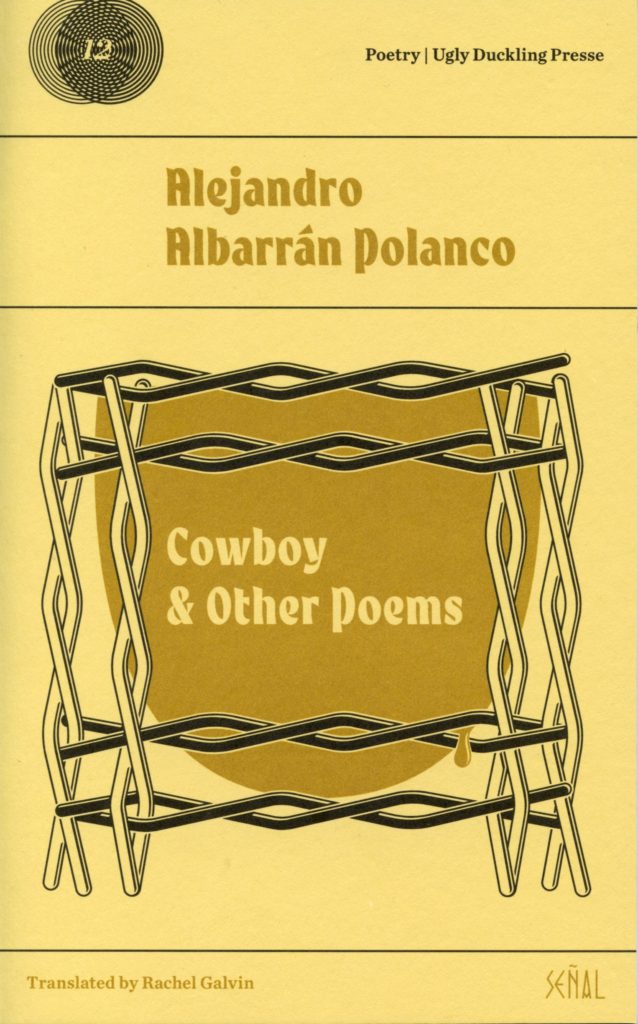from “Cowboy”
There are horses in the pubis, there are horses in the abdomen, in the pelvis there are algebraic bagpipes, there are some dumping gears, there are galápagos in the abdomen. There are galápagos and wallops: gallops.
*
(They say that’s a metaphor.) They say you eat it like this, like this, they say, they say bag, gallbladder, raft, they say membrane, bile, they say I’m rafting on a sea of bile, they say you have to cross with two coins on your eyes, I’d rather tear them out and just carry the sockets, the missing.
